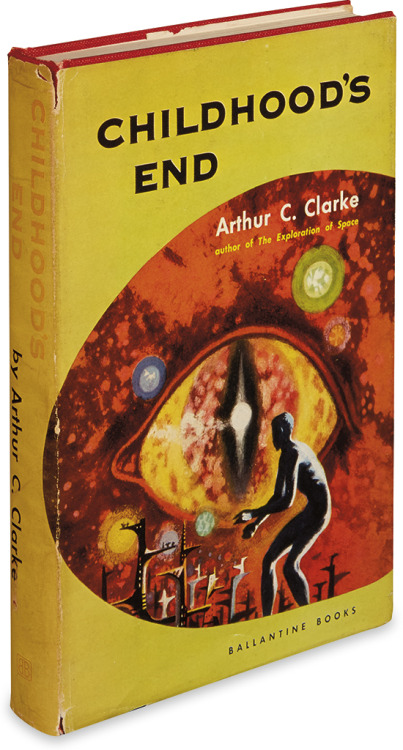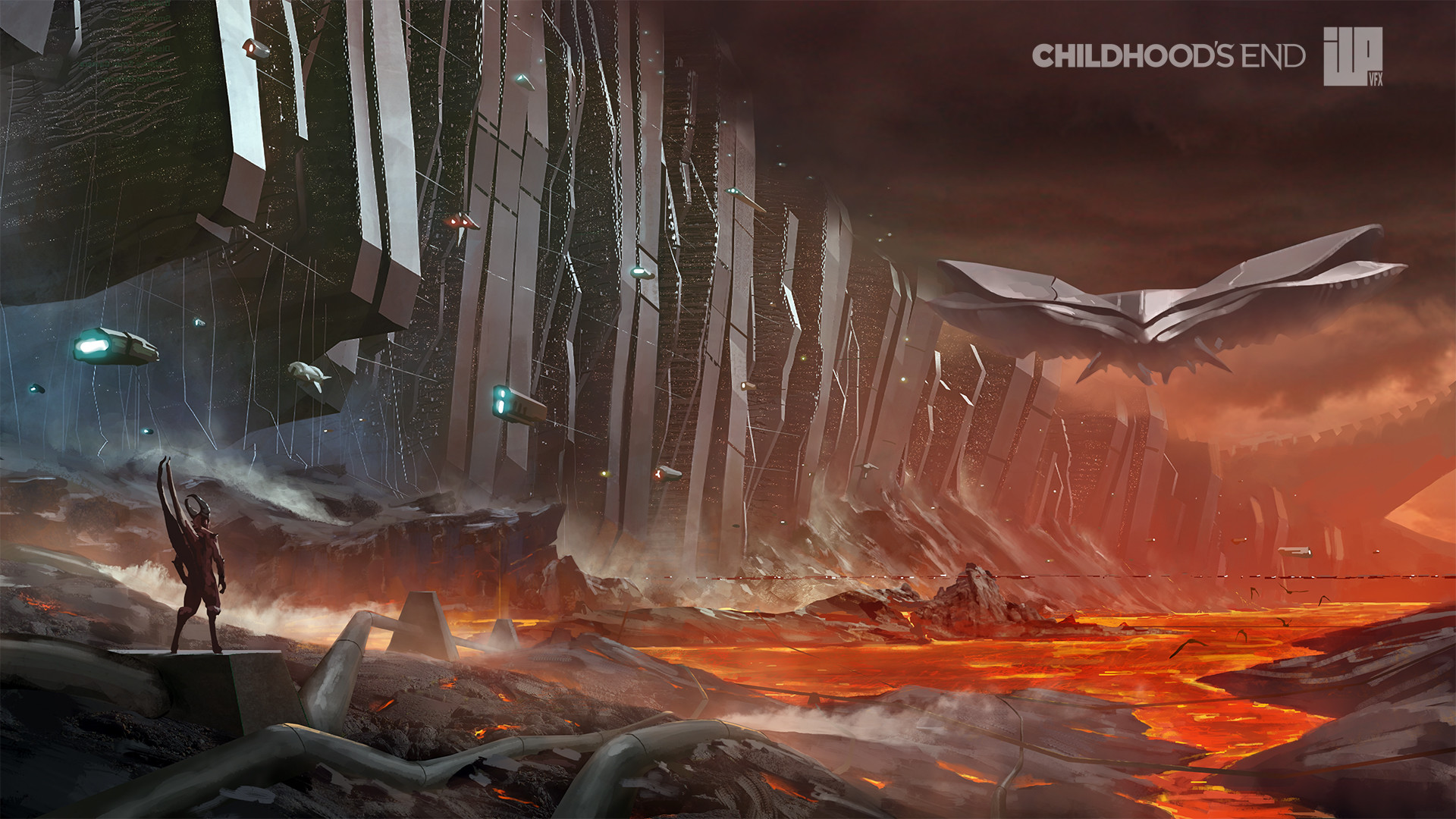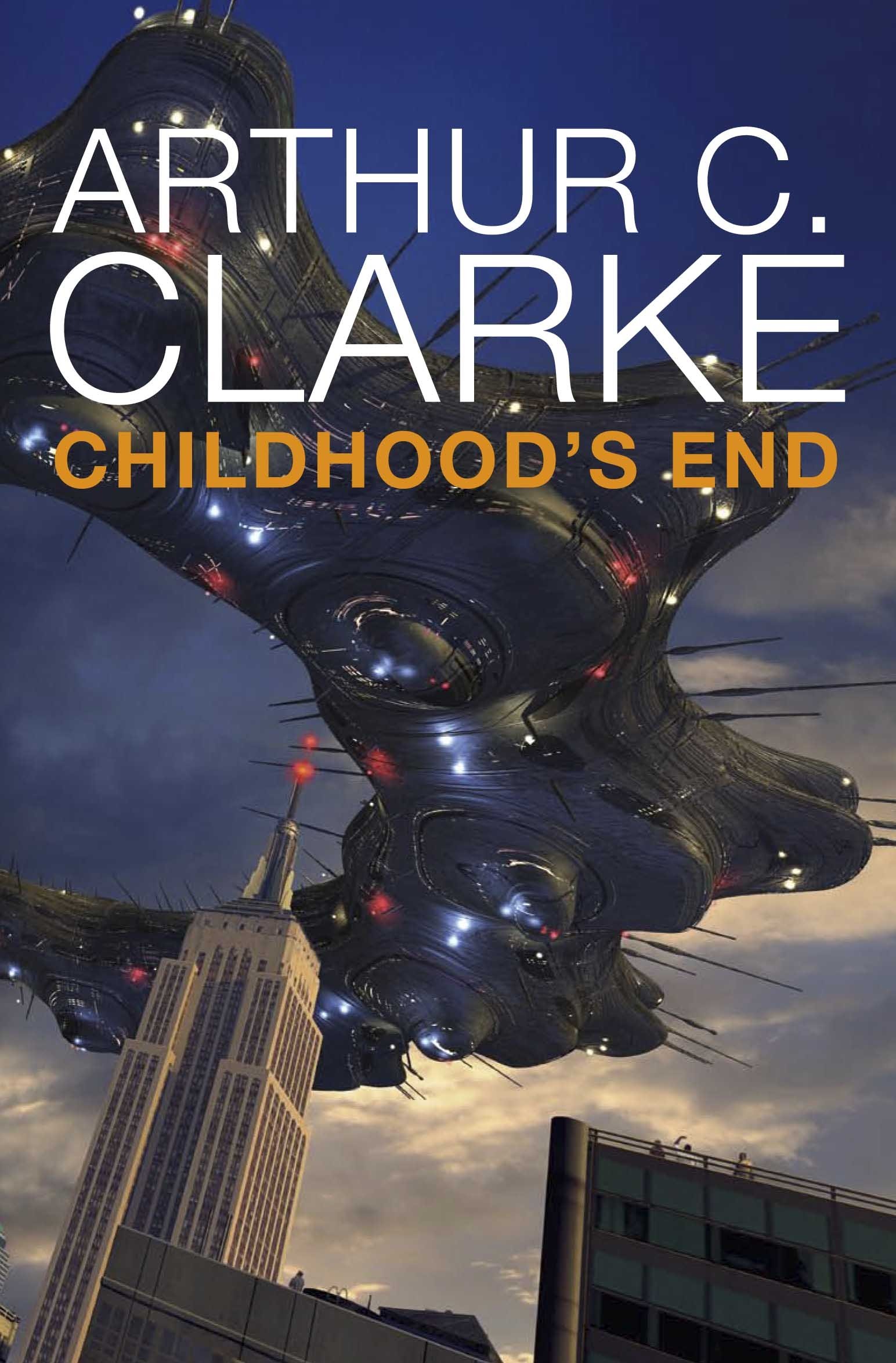My rating: 4 out of 5
Alien “invasion”, while not a new concept, has been a tried and true science fiction trope since the genre came to be. Many sci-fi authors have had a go at it at some stage because the arrival to Earth of a spectacular fleet of starships carrying more advanced beings will always be a cracking foundation for a story. In Childhood’s End, Arthur C. Clarke applies his great mind to the idea and the result is a thoughtful tale, academic and philosophical, offering a possible outcome to the evolutionary journey of mankind.
Huge silent ships appear over cities around the globe but the beings within keep themselves hidden, communicating only via the leader of the United Nations, all the while manipulating human society so that it becomes healthy and peaceful - a far cry from its state upon their arrival. They become known as the Overlords and they unite a world at war where crime is rife and poverty is all too common. What follows is a time of peace and prosperity where no one really has to work and where leisure, the arts and culture are what it's all about. Eventually the Overlords do reveal themselves and mix to a limited extent among the people of Earth, watching and learning. It soon becomes apparent that they have a bigger agenda, greater plans for the inhabitants of Earth. They desire to do more than just create a peaceful world, and what follows is a dramatic change of the human race. Ultimately it is the children of Earth who are the key to the grand plan, whatever it is, and it appears that even the Overlords aren’t privy to the big picture either. The ending is enjoyable and interesting, if a little depressing, and leaves me hoping that our species has a more noble destiny than the one portrayed here by Clarke.
There are a few things about the book that I really liked, one of them being the physical appearance of the Overlord aliens, which was an interesting surprise. It was cool how this tied into human mythology and thought, but it’s very late in the story that we learn the reasons why. I enjoyed the commentary on the state of humanity and of our psyche, which shows how well Clarke understood such things, and it's really quite sobering. It's written very well (allowing for the old-school dialogue and references) and flowed well making for a fairly smooth read.
 |
| Ballantine Books 1953 First edition |
As far as things I didn’t like, there aren't really any that spring to mind. It doesn't come across as overly dated, I thought, and even though it was originally published in the 1950s, the book has stood the test of time reasonably well. There are odd references to things such as listening to a "tape recording" or to the radio being the main form of broadcast media, but other than those it's generally okay. To be fair, being a work from a different era, the society is a little different (things like gender equality and representation, etc.) but that's exactly it, it was different world back then and to judge certain aspects of the narrative by our modern standards (as many do) is simply unfair and rather stupid. As an interesting side note, in 2004 Childhood’s End was nominated for a Retro-Hugo Award for Best Novel for 1954, which is indicative of it’s contemporary popularity. Honestly, this is definitely a book for the purist, someone who appreciates the work for what is it and who won't judge it by current thinking.
In conclusion, it's a good example of golden era writing by an author who thought about big ideas and was able to present them as a plausible (for the day) scenario. Would I generally recommend this to a reader under the age of about 40, or for one looking for pure entertainment? Nope, not at all, but for a reader who likes philosophical ideas and can accept the differences of the world in which it is set will probably enjoy the experience. I sure did and was again shown why writers like Arthur C. Clarke are seen as giants of literature.
4/5 for concept
4/5 for delivery
3/5 for entertainment
 |
| Childhood's End concept art by Alexander Forssberg |



